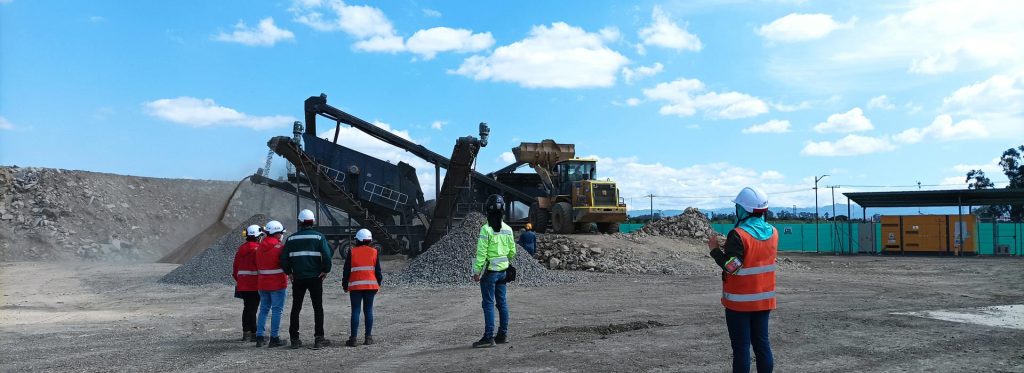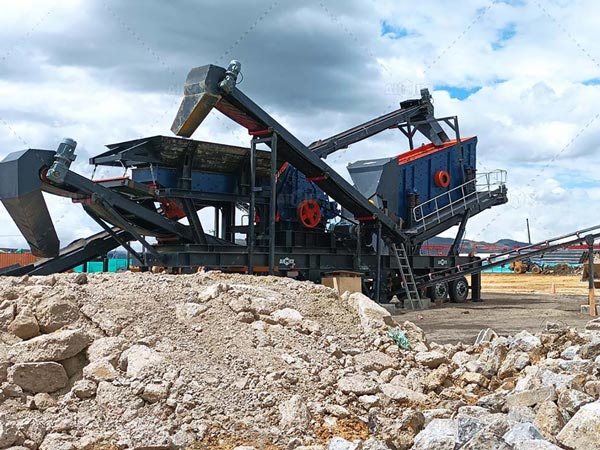Investing in a mobile impact crusher is a significant decision that promises unparalleled operational flexibility and on-site processing efficiency. These formidable machines transform demolition debris, construction waste, and virgin aggregate directly at the source, slashing transportation costs and opening new revenue streams. However, the initial price tag attached to these units can vary dramatically, presenting a complex financial landscape for potential buyers. Understanding the multifaceted economic drivers behind these costs is paramount. It involves peering beyond the surface-level specifications to grasp how intrinsic engineering choices, configurational complexity, and the nuanced value of brand provenance collectively determine the final investment. This analysis is not merely about finding a cost but about discerning value, ensuring that the capital allocated delivers optimal returns throughout the mobile impact crusher‘s entire service life.
Intrinsic Engineering and Core Component Specification
The foundational cost of a mobile impact crusher is inextricably linked to the quality and capability of its fundamental components. This is where the machine’s inherent value is forged.
The Heart of the Matter: Crusher Unit and Rotor Design
At the core of every machine lies the impact crusher itself, and its design is a primary cost determinant. A robust, monolithic rotor constructed from high-tensile steel, often featuring a closed-body design for immense strength, commands a premium over lighter, open-configuration alternatives. The number and type of blow bars, their ease of replacement, and the composition of the wear liners all contribute to both the initial expense and the long-term cost-per-ton. More sophisticated systems may include hydraulic assistance for adjusting the aprons or even a fully hydraulic adjustment for the primary and secondary crushing gaps, offering unparalleled control over product gradation but adding to the initial capital outlay.

Mobility and Power: Chassis and Drive Systems
The very “mobile” aspect of the crusher is a significant cost center. A heavy-duty, tracked undercarriage designed for rugged terrain, with features like variable grouser pads and robust track motors, is a far cry from a simpler, lighter system. The choice of power plant is equally critical. A high-horsepower, tier-final diesel engine from a reputable manufacturer ensures reliable performance and fuel efficiency but adds considerably to the base price. Alternatively, electric-drive options offer lower operating costs in fixed-location scenarios but introduce different complexities and expenses in their setup.
Configurational Complexity and Operational Capabilities
Beyond its basic components, the specific configuration and added features of a mobile impact crusher for sale profoundly influence its market price. These elements tailor the machine to specific operational paradigms.
Integrated Screening and Conveying Systems
A basic mobile impactor may simply crush and discharge material onto the ground. However, most modern units are sophisticated processing plants on wheels. The integration of a high-capacity, multi-deck vibrating screen in a closed-circuit design is a major upgrade. This allows for the immediate separation of finished product and the recirculation of oversize material, dramatically boosting efficiency. The quality, size, and number of stockpiling conveyors, including features like hydraulic folding and radial movement, further augment both the machine’s capability and its cost. This level of automation and self-containment minimizes the need for supporting equipment, justifying the higher initial investment through enhanced on-site workflow.

Advanced Control and Automation Technology
The operator’s interface and the machine’s brain represent another layer of financial consideration. A simple push-button control station is at one end of the spectrum. At the other are fully integrated, touch-screen control systems that allow for real-time monitoring of aggregate crusher machine parameters, tracking production totals, and providing remote diagnostics. These advanced telematics systems can alert owners to potential maintenance issues before they cause downtime, representing a form of operational insurance that is reflected in the purchase price.
The Nuanced Value of Brand and Support
The final price of a mobile impact crusher is not solely a function of its physical components. Intangible factors related to the manufacturer and the accompanying support ecosystem carry substantial economic weight.
Manufacturer Pedigree and Component Provenance
The reputation of the original equipment manufacturer (OEM) is a powerful price driver. A brand with a long history of engineering excellence, proven reliability in the field, and a global presence will inherently command a higher price than a lesser-known entity. This premium is often tied to the use of proprietary components and a demonstrable commitment to research and development. Customers are not just buying a machine; they are buying the assurance of a design that has been refined over decades of practical application.
The After-Sales Ecosystem: Warranty and Parts Availability
Perhaps the most critical non-physical factor is the support network that comes with the crusher. A comprehensive warranty package provides direct financial protection. More importantly, the global availability of genuine spare parts and the presence of a responsive, knowledgeable service team are invaluable. The cost of a single day of downtime can easily eclipse the savings from choosing a cheaper, less-supported machine. The higher initial price of stone crusher from a manufacturer with a robust after-sales ecosystem is, in essence, a strategic investment in operational continuity and long-term peace of mind.
